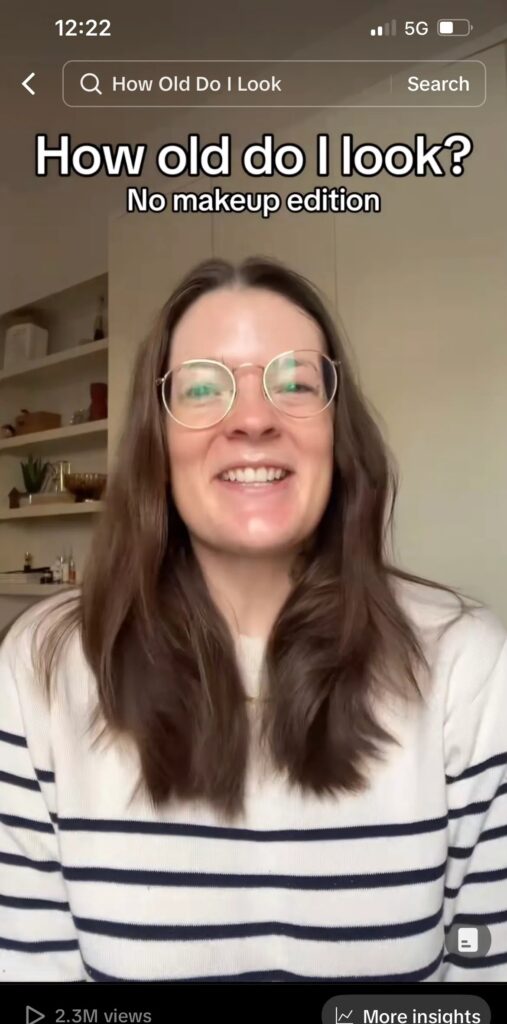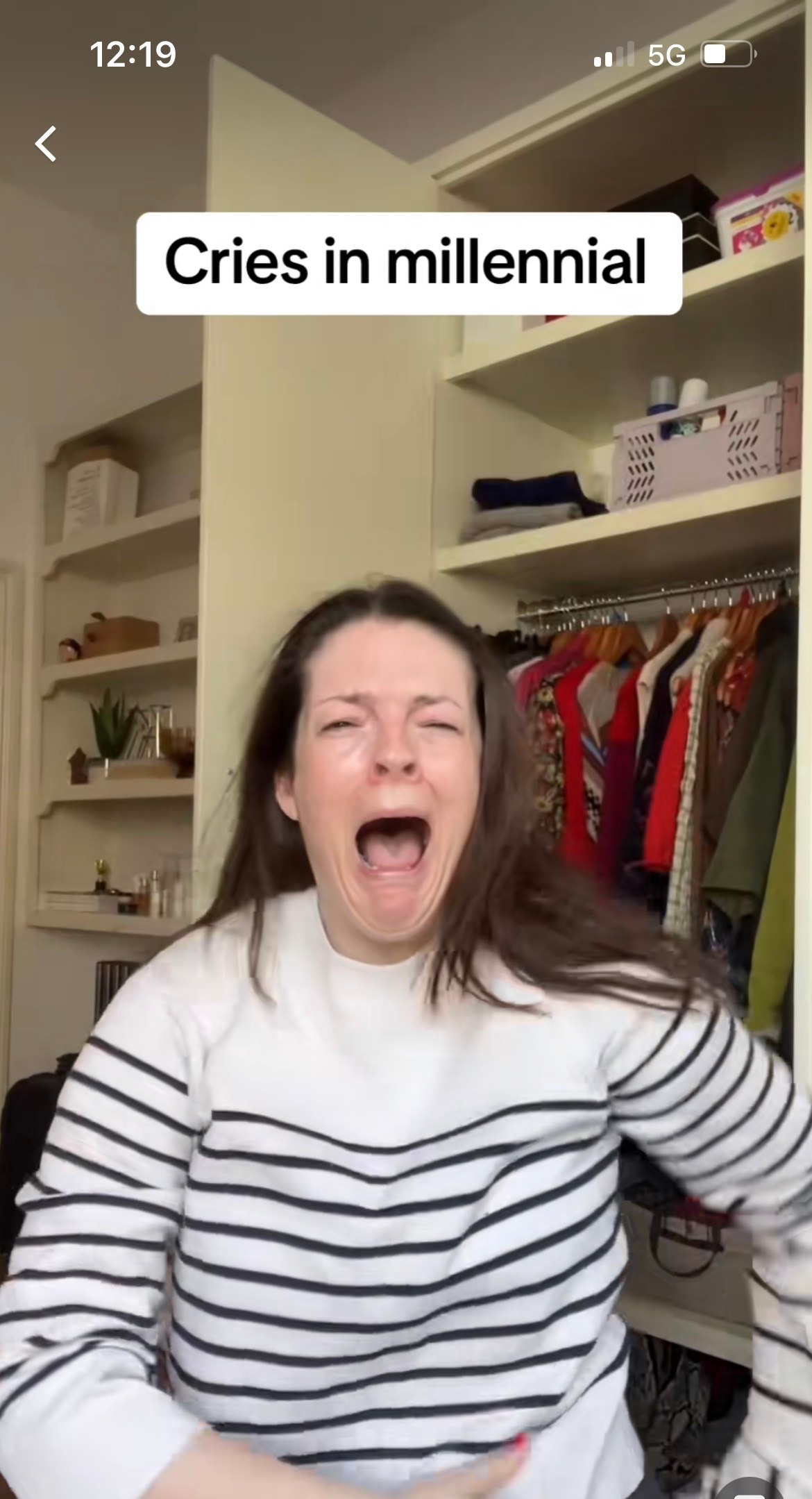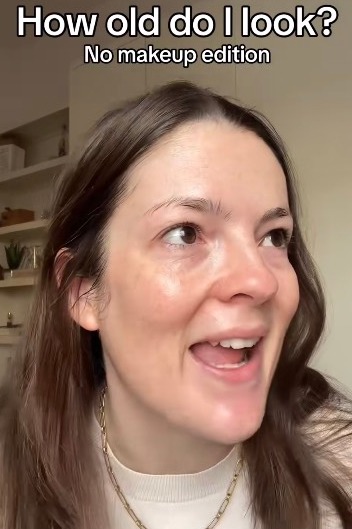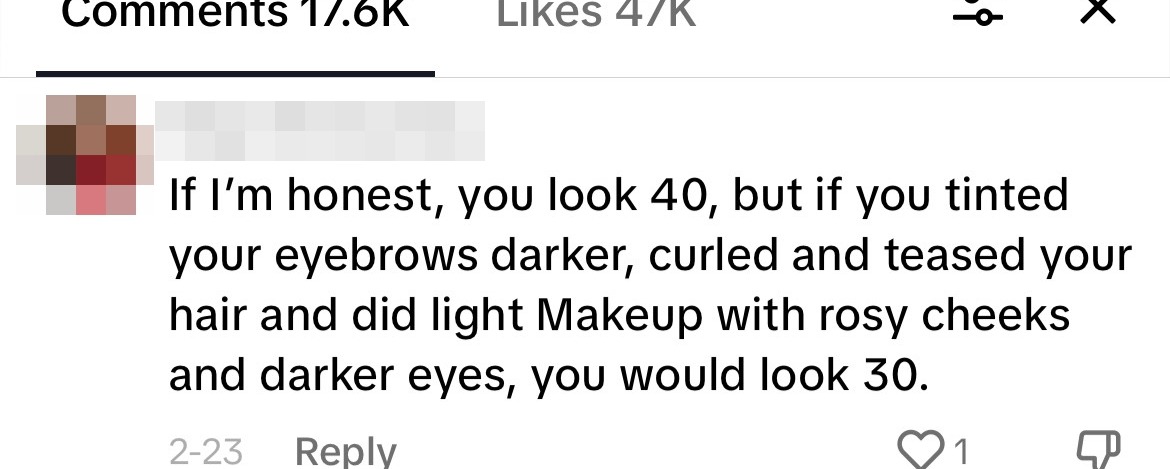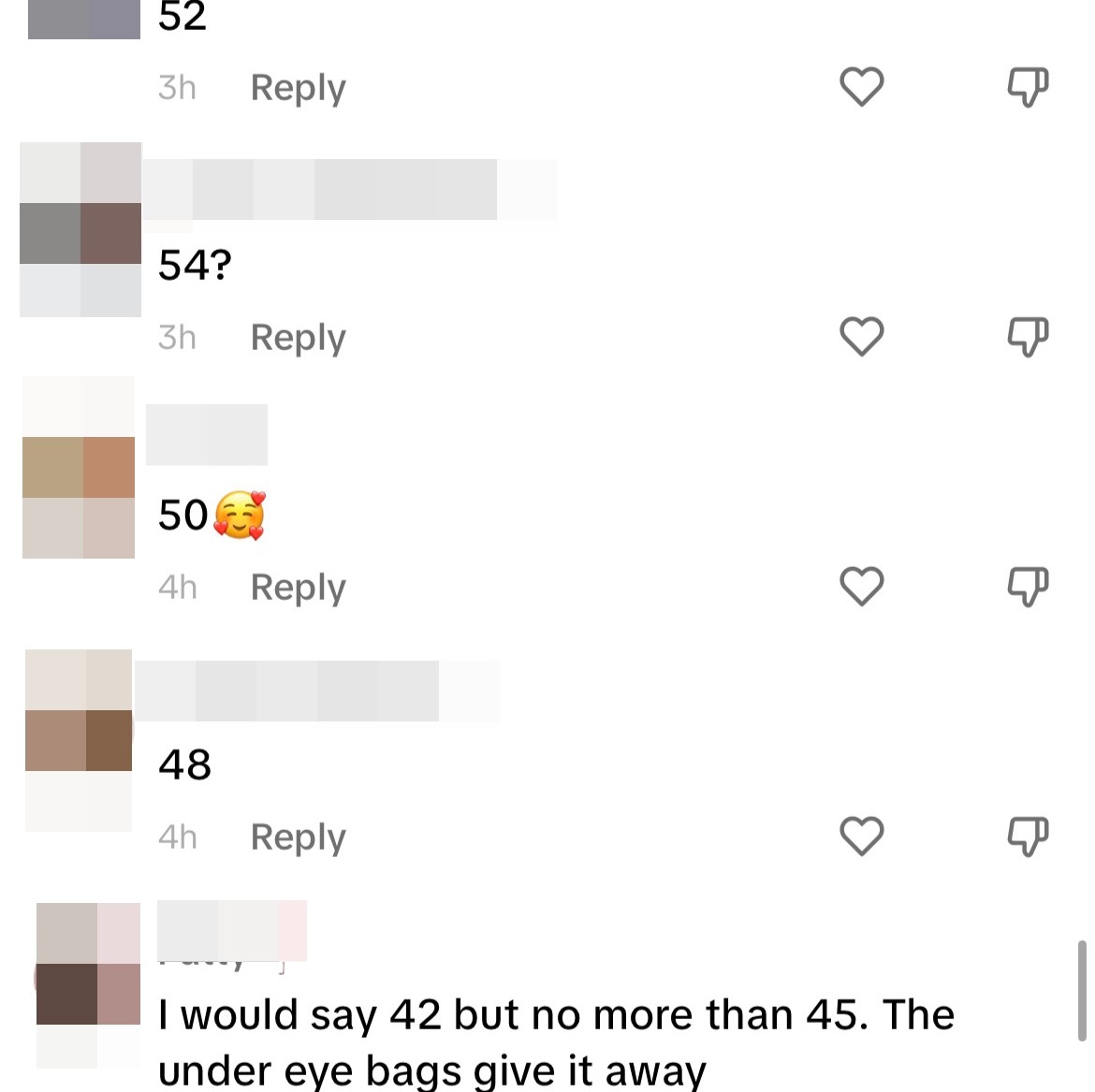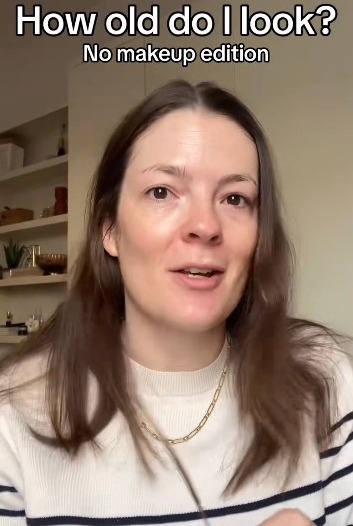“RADIANT skin”, “a youthful face” and “maybe in your twenties or thirties”.
Those are some of the confidence-boosting lines I used to hear about my fresh-faced appearance.
But after joining TikTok over a month ago, I soon learned that not only do I look two decades older than my real age, I could also benefit from a tweakment or two.
My wake-up call came after I decided to jump on the TikTok age-guessing trend that has gone viral.
I’m 34, work in marketing and live in Grimsby, and thought it made for an interesting “social experiment” so I put up a 30-second video of myself on the site.
Smiling and facing the camera, I simply asked: “How old do you think I look?” and then waited for the guesses to flood in.
People always assume that I’m somewhere in my twenties or early thirties, so — without dropping any hints as to my real age — I hoped TikTok’s users would decide between the two decades.
I am very comfortable with my appearance, so what harm could it do? Overnight, I gained more than three million views, 1,000 followers and 20,000 responses.
I was completely shocked that my self-filmed post, with no make-up, fresh-from-bed hair and cosy, striped jumper, could amass so much instant attention. How did my au-naturel face cause such a stir?
The TikTok algorithm, of course.
After #agedfilter, which uses AI to accelerate your face’s age by decades until the year 2073 went viral, accumulating 169million uses in less than a week, it is clear that social media continues to fuel our obsession with ageing.
According to the Washington Post, TikTok has been actively promoting ageing filters and challenges to capitalise on the public fixation with youthfulness, kick-starting a trend that became a global sensation.
Stunned by the number of responses, I began scrolling through the comments.
I couldn’t help but laugh hysterically as my eyes skimmed over some people’s guesses: Apparently I look 42, 47, 50 and even 67. And while a few fellow millennials guessed I’m in my thirties, the twenties were few and far between with the majority of guesses being forties and fifties.
That was a little surprising, seeing as I don’t smoke, I’m active, love my skincare and wear factor 50 SPF daily. Yet TikTokers advised me to wear more as apparently I have sun damage.
I really wasn’t that fussed by the numbers. Yes, 42 hurt, but some of the other guesses were so off the mark I had to laugh. Instead, it was the unsolicited advice that chipped away at my normally upbeat spirit.
With my job, I know how cruel social media can be.
But I didn’t expect strangers to be quite so willing to pick apart someone else’s face.
In my video, I asked “How old do I look?” not “How can I look younger?”, yet many of the comments gave well-thought-out reasons as to why I look so ancient, along with suggested “improvements”.
Many said I look older because of my under-eye bags, a family trait I’m very proud of
One comment analysed my face like it was forensic evidence: “You are wearing glasses, so your eyesight must be deteriorating, which makes me think you are 50.” Ouch!
Or how about this one: “You have grey teeth fillings, so I think you are in the late forties.”
Even my & Other Stories jumper got a bashing — apparently, stripes are solely reserved for the middle-aged now.
Many said I look older because of my under-eye bags, a family trait I’m very proud of.
I was also told I needed a brow lift for my hooded eyelids, full dental work, tear-trough filler for the aforementioned bags and Botox for my forehead wrinkles.
Those fine lines have been there since my twenties, by the way.
Though I have nothing against cosmetic treatments, it’s not something I’ve ever considered — especially after witnessing my mum, now in her early seventies, age well naturally. And I’ve always believed that growing older is a privilege not all of us are lucky to experience.
I’m still very happy with how I look, but for some, this TikTok trend could be confidence-crushing.
Telling someone they should invest in Botox or fillers is not OK and the experience showed me just how normalised cosmetic treatments have become and how warped our views on ageing are.
Youth-promoting content is huge on TikTok with the #antiageing hashtag clocking up 7.4 BILLION posts.
And kids as young as eight have started to adopt strict beauty routines. According to the British Association for Dermatologists, some are already using the potent skincare ingredient retinol.
A brief scroll through my video comments shows that many young people are scared to age.
Surprisingly, many of the 50+ guesses came from people in that age group, possibly because it made them feel better to think someone younger than them looks older.
That said, the mixed bag of responses, some that placed me as a granddaughter, others as a grandmother, proves our perspective of age is skewed. Clearly no one knows what anyone is supposed to look like any more.
I’m still very happy with how I look, but for some, this TikTok trend could be confidence-crushing
TikTok user @theskincarediarist, who also tried the trend, said: “I get told I look like I’m 28, 38, 48 and 58. This shows that everyone’s view on ageing is warped thanks to Photoshop, filters and facelifts.”
In the last 12 months, 7.7million people have undergone an aesthetic treatment in the UK.
The number of patients under 30 requesting plastic surgery or injectables has increased by 75 per cent.
At 34, I don’t want to look just the same as I did when I was 20.
I have lived a life since then and my face — and the signs of ageing — is simply a map of that.
To anyone considering following in my footsteps and trying this TikTok trend, I say proceed with caution. Hiding behind a phone or a faceless account makes people brave and allows them to get personal and pull you apart for fun.
That said, I would do the trend again. It instigated engagement and grew my TikTok account. I can’t help but smile about that.
And at least my natural laughter lines prove that I’m still capable of having a good giggle.
- As told to: Siobhan O’Connor

